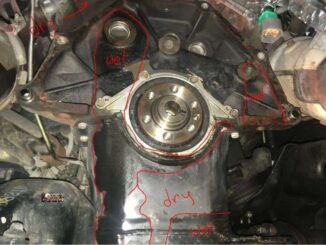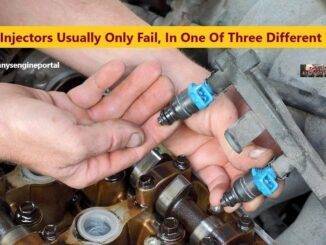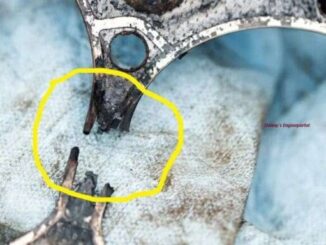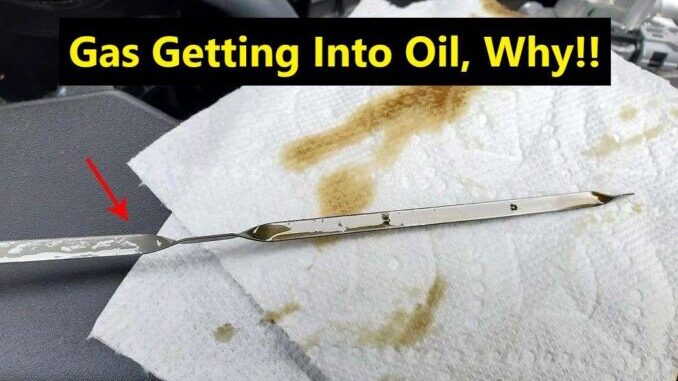
When changing your oil, one of the worst things to notice, is the smell of gas in the oil.
Because, it means that gas, is somehow making its way into your engine’s oil.
However, it is normal for a small amount of gas, to get into your oil, during normal engine operation.
So, Gas Getting Into Oil, becomes a cause for concern, when the volume of gas, exceeds 2.5 percent. If a large amount of gas does get into the oil, change the oil immediately, upon fixing the problem.
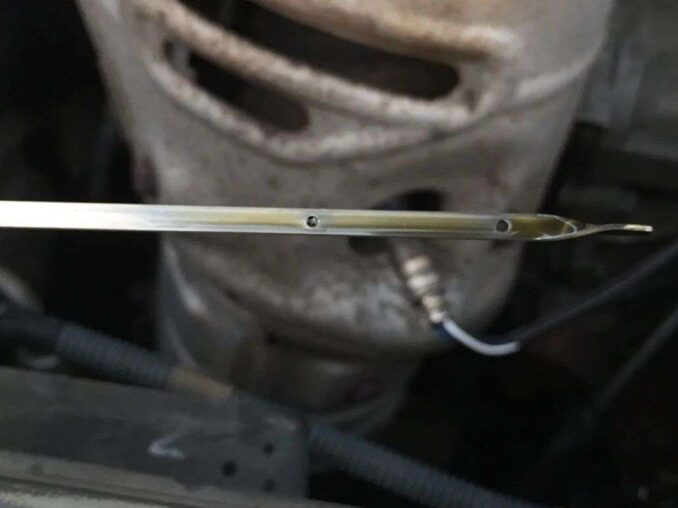
Because, this results, in a significant reduction in the oil’s viscosity. Which, in turn affects engine lubrication, and causes scoring of the cylinder walls, along with bearing failure.
Signs You May Have A Problem With, Gas Getting Into Oil Are:
- If you start to smell a strong odor of gasoline, while you are driving.
- You notice white clouds of smoke, coming out of your exhaust pipe.
- Oil level might be, really high (Dipstick smells like gas).
- Low oil pressure.
Engines With Carburetors
So, a badly adjusted carburetor, can send too much gas into the carburetor. And, the overflow will eventually, wash down the cylinder walls, and end up in your oil pan. This also tends to foul the spark plugs. Thus, one way to check for this problem is, to pull one of plugs and look for blackening on it. It could have a washed look as well. Cars that are more than ten years old, usually have mechanical fuel pumps.
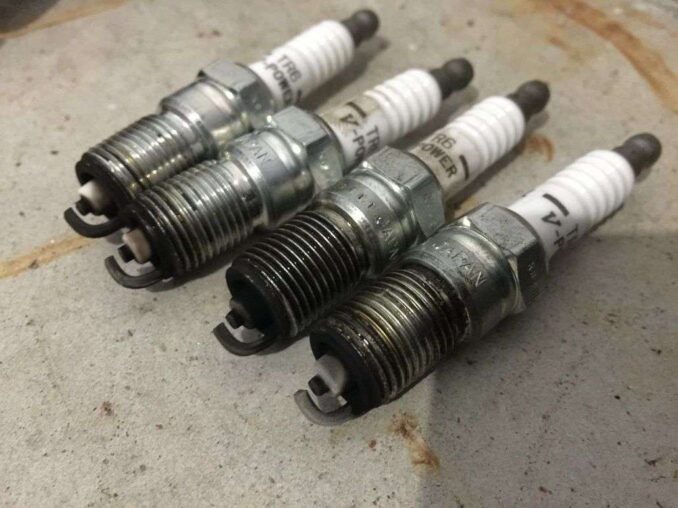
So, is your vehicle’s engine is running with, a stuttering or knocking sound. Then, it is possible that, one cylinder is not firing correctly. Consequently, leading to gas condensing in the faulty cylinder, and draining into your oil pan. Accurately diagnosing this problem, requires some special testing equipment, and needs to be done by a trained mechanic.
The gasket that sits between, the engine block and cylinder head can blow. Consequently, leading to coolant leaking into the oil or exhaust fumes, being pushed into the coolant system.
Driving with a blown head gasket, can easily ruin the engine, leading to costly repairs. You can run a compression test on your engine. Then, if there is a leak in the head gasket, the compression will be lower than expected.
So, The First Things To Check Are:
- Mechanical fuel pumps.
- Spark plugs.
- Badly adjusted carburetor (Gas could also leak into your intake manifold, if there is a carburetor problem).
- Low compression.
- Blown head gasket.
If a large amount of gas does get into the oil, change the oil immediately, upon fixing the problem.
Fuel Injected And Newer Engines
So, the number one cause would most likely be, leaking fuel injectors. This takes place when engine is off. Due to pressure on the fuel rail. Fuel will push itself down into the cylinder, of any leaky injector and gradually, drip into the oil pan.
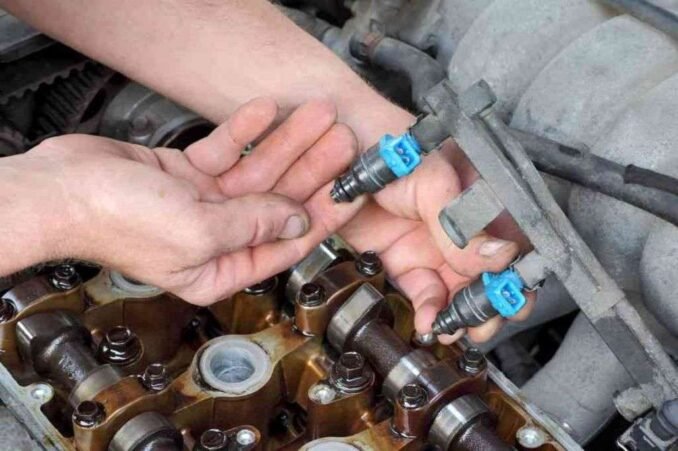
But, in this case, you will observe that the car would, hard start and rough idle. Especially when parked overnight, until the dumped fuel in the cylinder clears off.
When a fuel injector is stuck open, the fuel will flood out. Gas will definitely get into the oil when this is the case. And, if the fuel pressure in your car is too high, that may cause gasoline to get into the engine oil.
A bad injector system, can also cause this problem. Because, if the engine is not firing properly, the gas will end up, running down the walls of the cylinders.
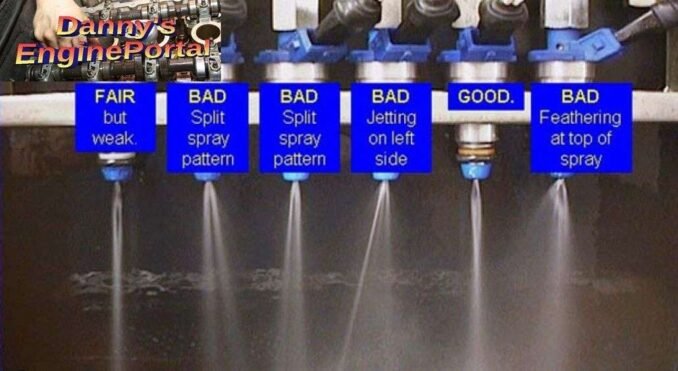
So, The First Things To Check In Your Fuel System Are:
- Fuel injectors
- Faulty fuel pressure sensor
- Spark plugs
- Fuel pressure regulator
- Intake manifold
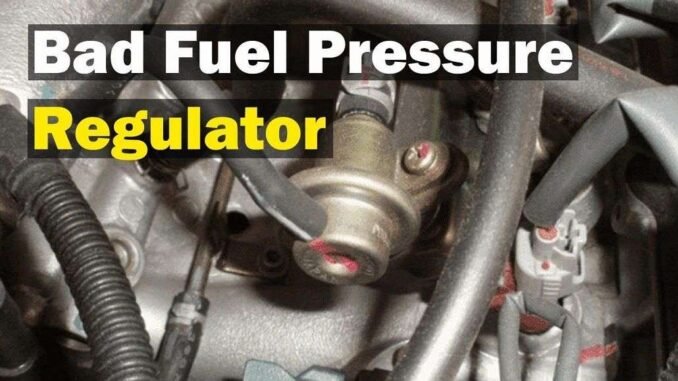
Also, if you have a no start engine situation, don’t keep trying. Because, the injectors will still be putting fuel into the cylinders, even though the vehicle does not start. (You end up with gas getting into oil)
Last, but very important
Fix any fuel related trouble codes and change your oil, before, starting your engine.
Conclusion
Also, if too much gas, has mixed with your engine oil, you may have to replace the piston rings. Finally, investigate the many other possibilities, as to why the gas is leaking into the oil.
BY DANNY BENDER


